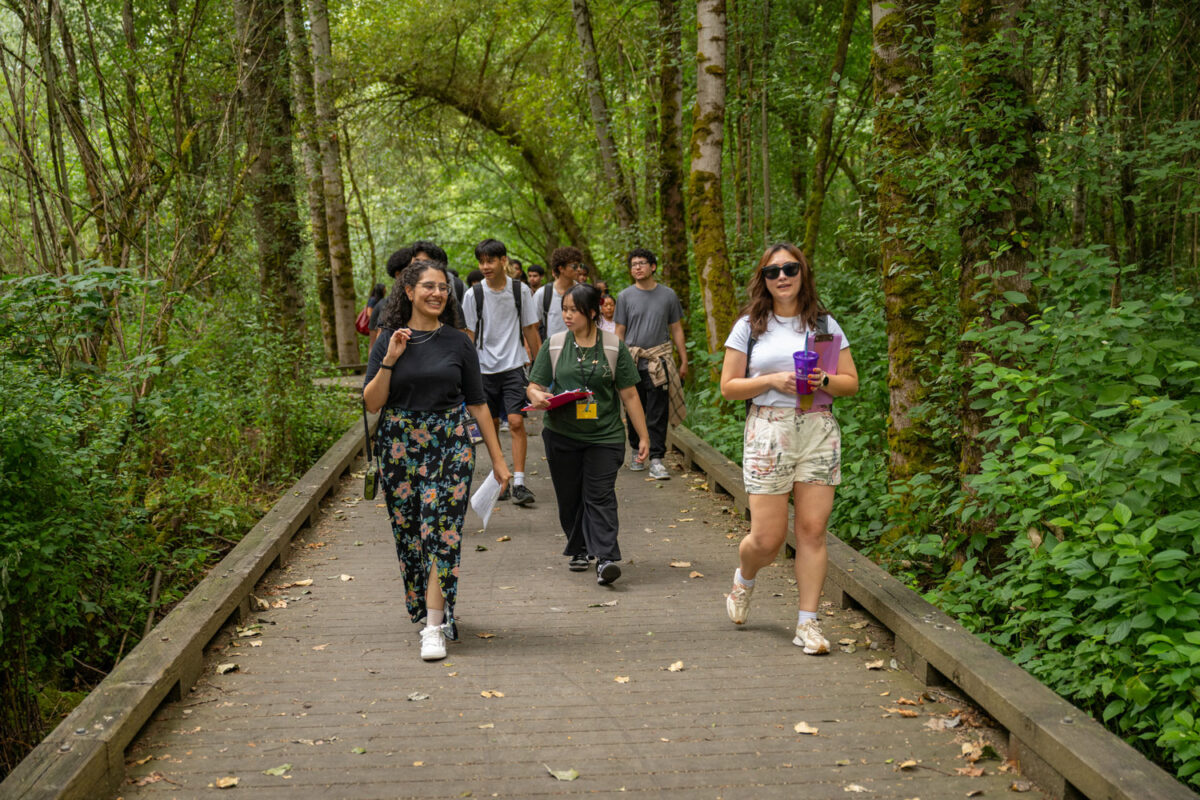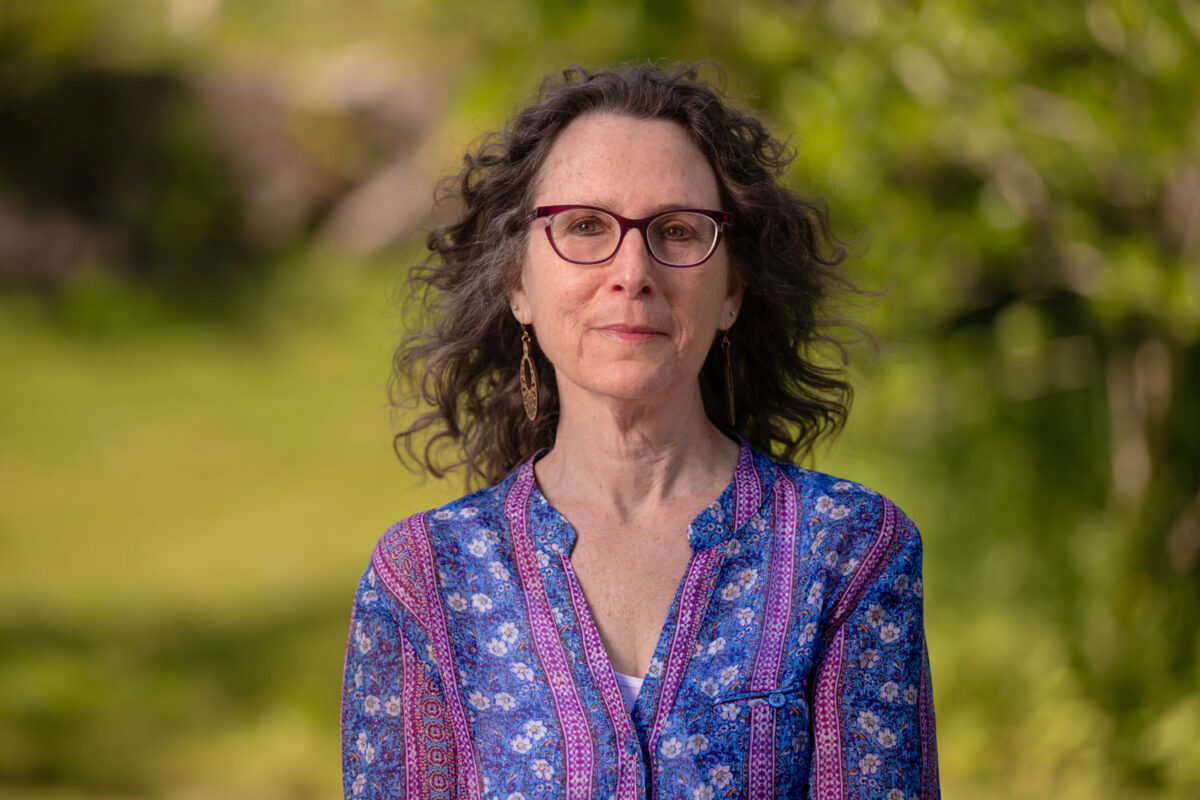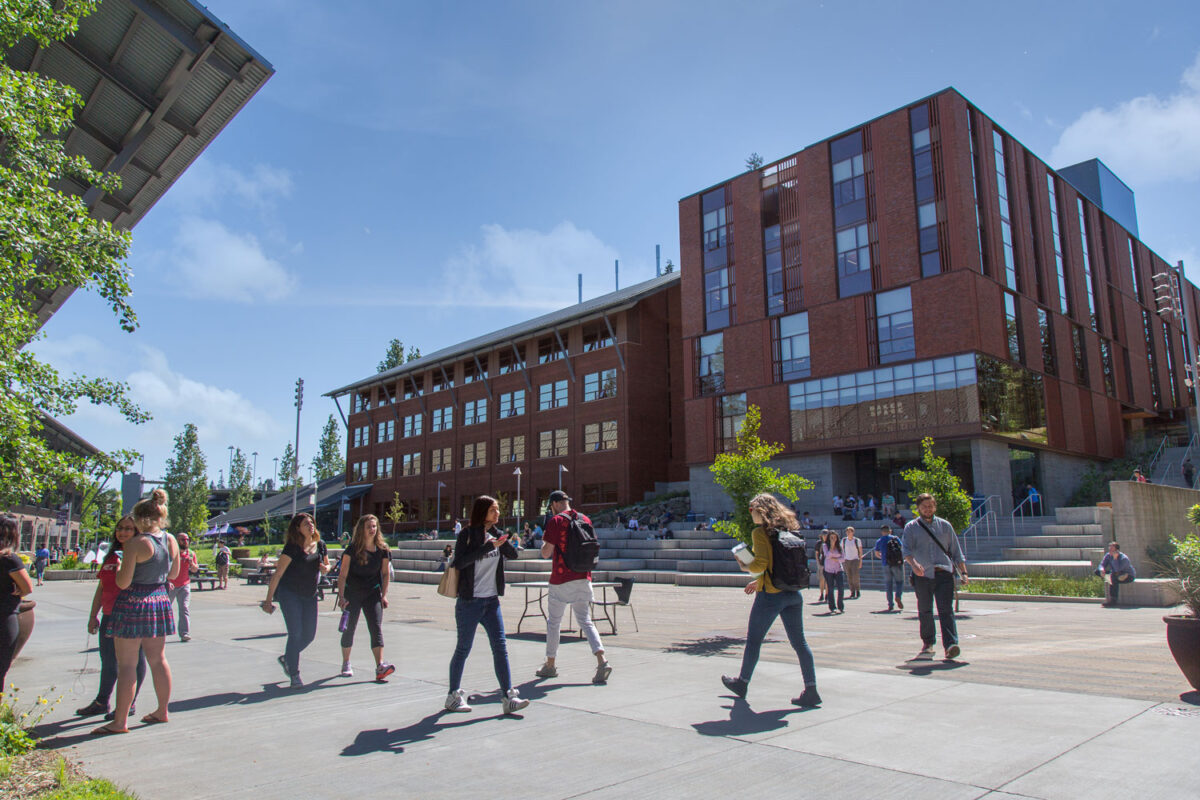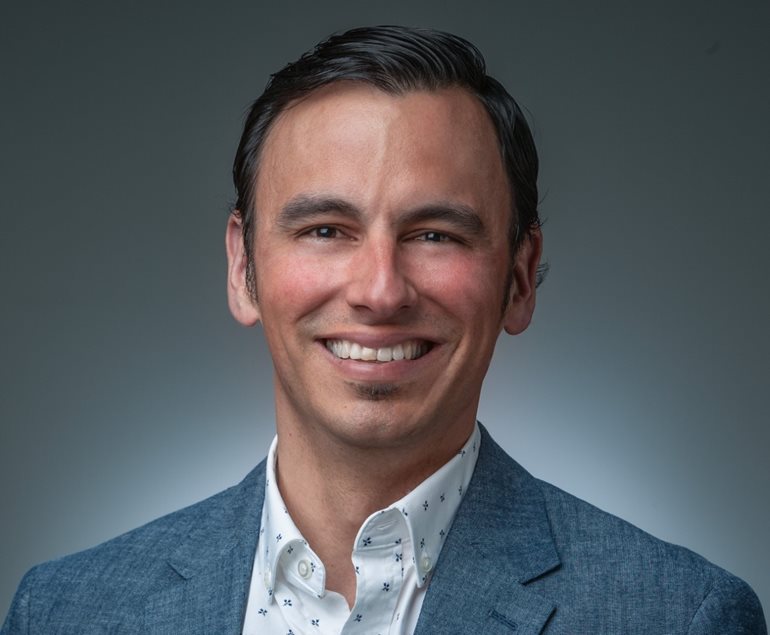
By N.L. Sweeney
In the context of the Black Lives Matter movement, questions of accessibility and inclusion are fresh on the minds of students and faculty at the University of Washington Bothell. Jason Naranjo, senior lecturer in the School of Educational Studies, is also taking the question of accessibility and exploring it in the context of education and ability.
In his course, Disability in Society, Naranjo examines history, theory, values and assumptions about disability within schools and society. He hopes to illuminate for students the ways disabilities interconnect with issues of accessibility in other spheres.
The course is offered through the tri-campus Disability Studies Program, comprised of faculty, students, staff and community members who seek to challenge traditional ways in which ideas about disability are constructed. In addition to his faculty role at UW Bothell, Naranjo serves as core faculty in the DSP.
“Issues of race and class are bound up with how we perceive ability,” said Naranjo. “That’s why it’s so important that we address issues of ableism in the classroom because these concepts are all very intertwined.”
Recreating an online course
When Naranjo envisioned this interdisciplinary course, he had plans to take students out of the classroom. “Originally, this course was planned as a partnership with the Outdoors for All Foundation and would have had us working in the community, but then the pandemic happened,” said Naranjo. “When I restructured the course, I wanted to make sure we still had community involvement.”
Naranjo’s solution was to bring in the voices of disability rights and justice leaders to the virtual classes. Highly respected in their fields, the three speakers offered their guest lectures from across the United States. The lecturers were Emily Nusbaum, who specializes in disability rights and activism in K-12 schools; Scott Danforth, the assistant dean of research at Attallah College of Educational Studies; and John Johnson, the research and development director at the Sanford School of Medicine.
In addition to the class textbook, students in the class explored podcasts, videos and art that center the voices of disabled people. “It was really important to me that I feature not only allies for disability rights but also people who have their own disabilities,” said Naranjo. “I wanted students to be able to hear these stories, especially since many people in the class experience disability themselves. I wanted students to be able to see themselves in the people who ‘came’ to our class.”
Making the course accessible
For Naranjo, a key focus for a course about disability is making the class itself accessible as possible to the students. “This course has made me really rethink my pedagogy,” said Naranjo. “For example, writing papers does not always offer a good representation of what a student has learned from a course. Instead, I’ve offered alternatives such as creating a poem or art piece that is in conversation with the subject matter.”
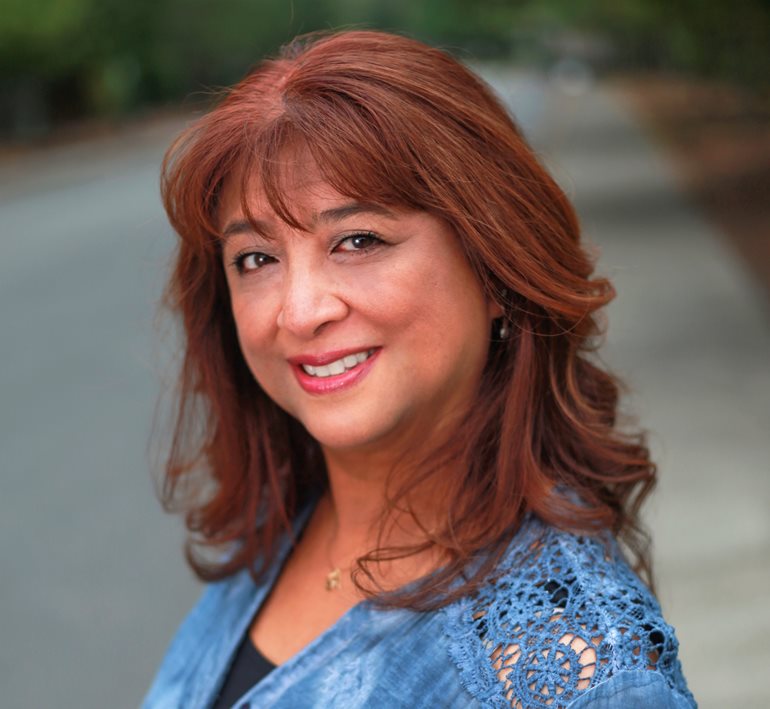
Naranjo made sure that all the resources were as accessible as possible to meet the varying needs of his students. Rosa Liu, assistant director of Disability Resources for Students at UW Bothell, was pleased when she found out that Naranjo was teaching this course, as this topic is especially important during the pandemic.
“Making classes remote brought a lot of questions of accessibility to the forefront,” said Liu. “I’ve been pleased by how many instructors, like Jason, have reached out with the hopes of creating resources and learning that are more adaptive to the needs of students.”
Bringing change through education
Liu was also hopeful about the impact that courses like Naranjo’s can have.
“This has been especially timely with the BLM movement,” she said. “We all have knee-jerk responses when we are met with someone different than us. My hope is that courses like this one will help us check our assumptions and privileges.”
These kinds of courses make spaces where students can see themselves reflected in positive ways and find a sense of community, Naranjo said.
“I follow the leads of my students in understanding their lived experiences,” he said. “The depth and richness my students bring to class informs my pedagogy and, I believe, has made me a better educator as a result.”

